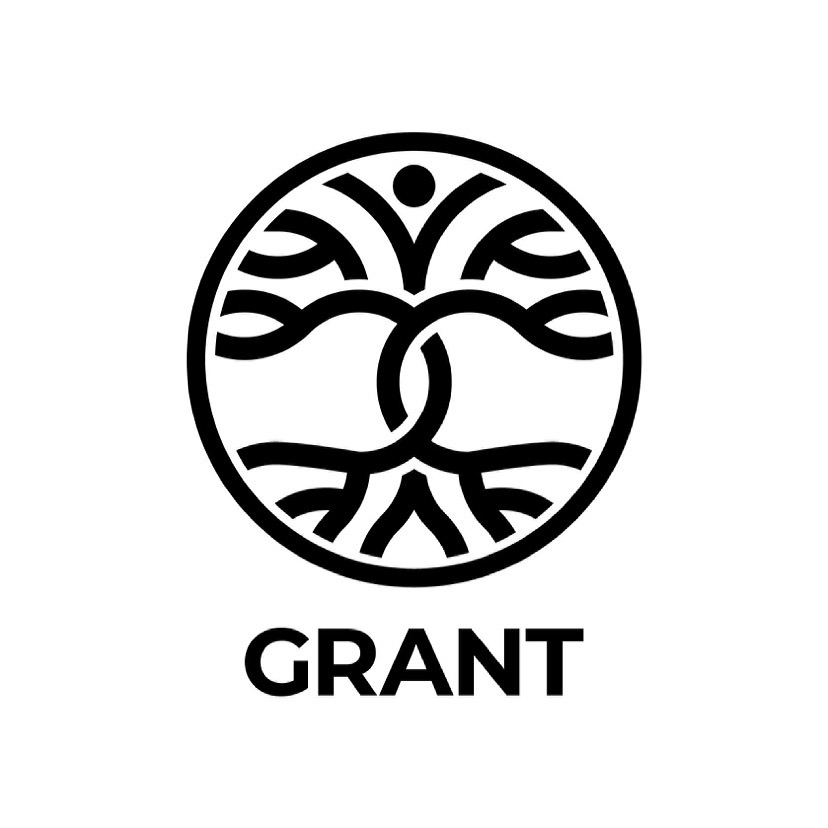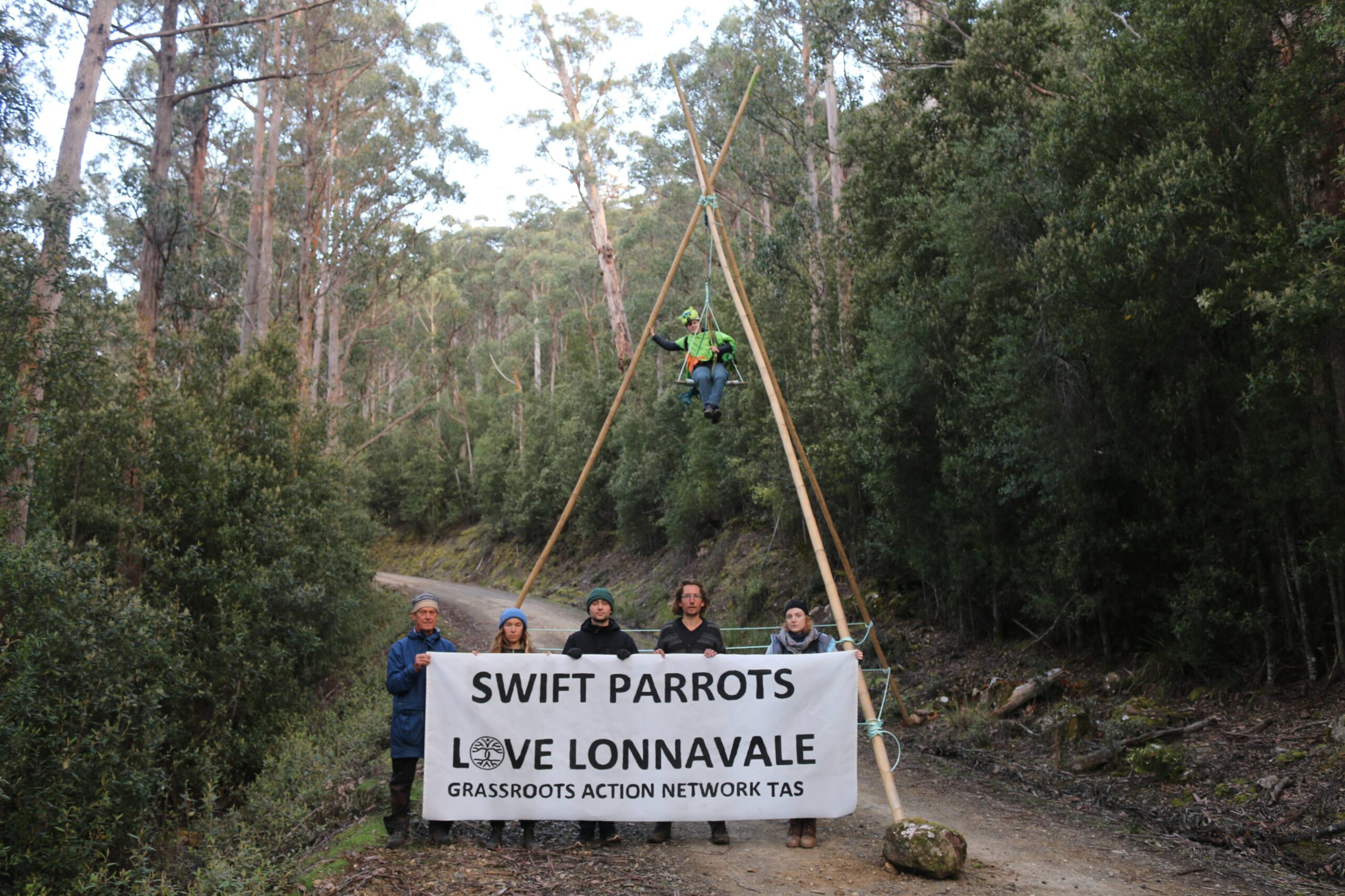Logging of valuable Swift Parrot habitat throughout the southern forests has been halted for the second time this week by a complex direct action operation involving The Wilderness Society’s Campaign Manager, Tom Allen.
Two forest defenders, including The Wilderness Society’s Campaign Manager Tom Allen, have this morning halted logging operations in Lonnavale Forests for the second time this week.
The action has seen national organisation The Wilderness Society (TWS) and local grassroots collective Grassroots Action Network Tasmania (GRANT) unite in an unprecedented show of concern for the critically endangered Swift Parrot, which have been heavily recorded to be breeding and nesting in the area which saw logging operations commence this week.
The complex operation, involving a tree-sit and 8m tripod connected by climbing lines, follows a similar action staged by GRANT on Tuesday which demanded improved management policies on behalf of Sustainable Timbers Tasmania (STT) in order to save the species, whose decline is principally driven by the continued logging of their habitat.
The groups are calling for a complete overhaul of the Swift Parrot management plan, including declaring the Lonnavale forests (across the Barnback, Russell & Denison areas) a Swift Parrot Important Breeding Area – a proposal previously proposed twice by scientists and refused.
Under Minister Barnett’s current plan to reserve 10,000 hectares for Swift Parrot management, existing management plans for the species will be removed and all external forestry land will lose current sustainability prescriptions.
According to Tasmanian Campaign Manager for The Wilderness Society, Tom Allen, action such as this is necessary in order to bring Australia’s ecological practices in line with the rest of the world
“We’re doing this because it’s effective, because it’s part of a broader campaign, and because we know that most Tasmanians want these forests protected too. We’re doing this because unfortunately, it’s come to this.
“Since COP, 200 countries have pledged to phase out coal use, over 100 countries have pledged to end deforestation, and the writing is on the wall. It’s time for Tasmania to transition to a plantation-based forestry future like Victoria and Western Australia already have. We need to step up and make sure our government does the right thing.
“People power is incredibly effective and this is one of several tactics that we are using to try and protect these forests. There’s nothing sustainable about logging high conservation value forests or logging threatened species habitat.”
Today’s action follows the launch of the ‘Act Swiftly’ petition, put forward by TWS, GRANT and Forestry Watch this week to better protect the spectacular southern forests and Swift Parrot habitat from industrial logging
Adrian Warner, a Huon Valley farmer who regularly spends time in Lonnavale’s forests, claims that the current forestry practices are deceptive and destructive.
“If you spend time walking in these forests like I do, you will see that this is not a good practice. STT doesn’t log ‘selectively’, these trees will be clearfelled because that is what STT does. It’s a high value area – a mature ecosystem with incredible Swift Parrot habitat, and a massive carbon sink. These forests sequester a lot of carbon and need to be maintained to become old growth forests.
“I’ve resorted to direct action to slow down the destruction and to bring attention to the fact that this is still happening in Tasmania, in Australia – we’re still clearfelling old forests which are incredibly valuable in the situation that we’re in right now. We need all the help we can get to combat climate change and these forests are important.
“I think it’s inevitable that the Tasmanian government transitions to more sustainable practices – it’s not financially viable to continue doing what we’re doing. It’s going to happen – the question is, will it happen in time?
“I would like anyone who reads this to contact their local representatives, I would like them to go out into the forest and experience it for themselves. See the beauty, learn about what’s happening, and speak up.”

